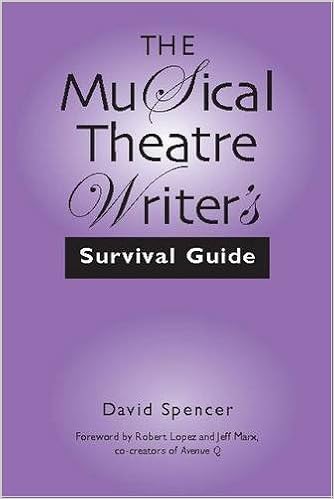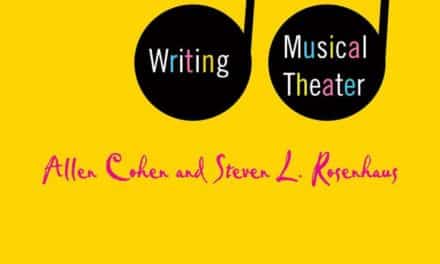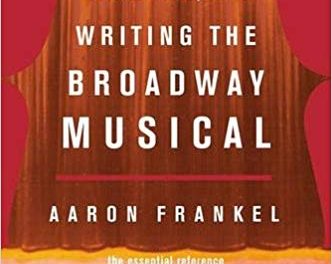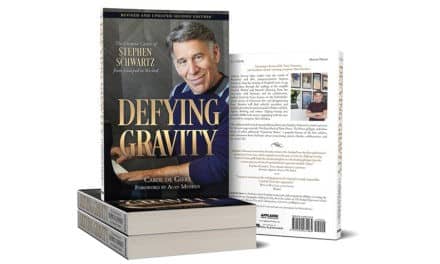Does reading certain books make you feel as if you’ve had your brain in the shop for a tune-up? It does me. Suddenly I find that I’m forming clearer sentences and drawing surprising conclusions. That’s how I felt while I was reading The Musical Theatre Writer’s Survival Guide, by David Spencer, a frank and funny look at what the author feels musical dramatists need to know “to keep going.”
Will you agree with every single piece of advice? I didn’t. Do you learn as much about Spencer as his intended subject? I suspect so. Will you cringe at his take-no-prisoners assessment of the work of some of our industry’s icons? Only when other people are watching.
Spencer doesn’t deny the success of the Andrew Lloyd Webbers of the world. He simply debunks it. The Capeman is characterized as “more than a little absurd even on its own terms.” The Phantom of the Opera “earns its steadily-treading keep as tourist fare.” Even ‘The Producers’ is described as “a comic parlor trick peppered through with novelty numbers.” The candor of Spencer’s criticism is reflected in every other aspect of the book and that is its strength.
For example, though he readily admits that the information he includes on crafting the book, music and lyrics of a musical is available elsewhere, Spencer leavens each of these sections with what he describes as “immutable truth.” He carefully examines each of these elements, dwelling on what has and hasn’t worked in the past. He then forms guiding principles that are based on the evidence he presents. You would be ill advised to dismiss his conclusions.
As on target as are his thoughts on book writing, David Spencer really hits the mark when he covers less familiar ground “such as the chapter on comedy, which contains the snappy truism “the punch line is really a sucker punch.” His advice on song writing ring equally true, but it’s his notes on demo recordings that really sing. He deals well with the writing of adaptations, but there are even better tips about adapting your own script for readings and backer’s auditions.
In the end, it is Spencer’s overall approach to writing that is of greatest value. “Examine the situation, discuss it, don’t be rash,” he says. “And almost always you’ll find a principle, just under the surface, that will guide you safely.” Or you can keep a copy of Spencer’s book in your back pocket.
From an advertising blurb: David Spencer’s book published in July, 2005 provides a fascinating handbook for anyone contemplating writing a musical or working through the complications of the process. 216 pages. Includes chapters on collaboration, secrets of succesful libretti, knowing the score, adaptation, writing for young audiences, writing comedy, the art of the reading, advice on demo recordings, and more.


















